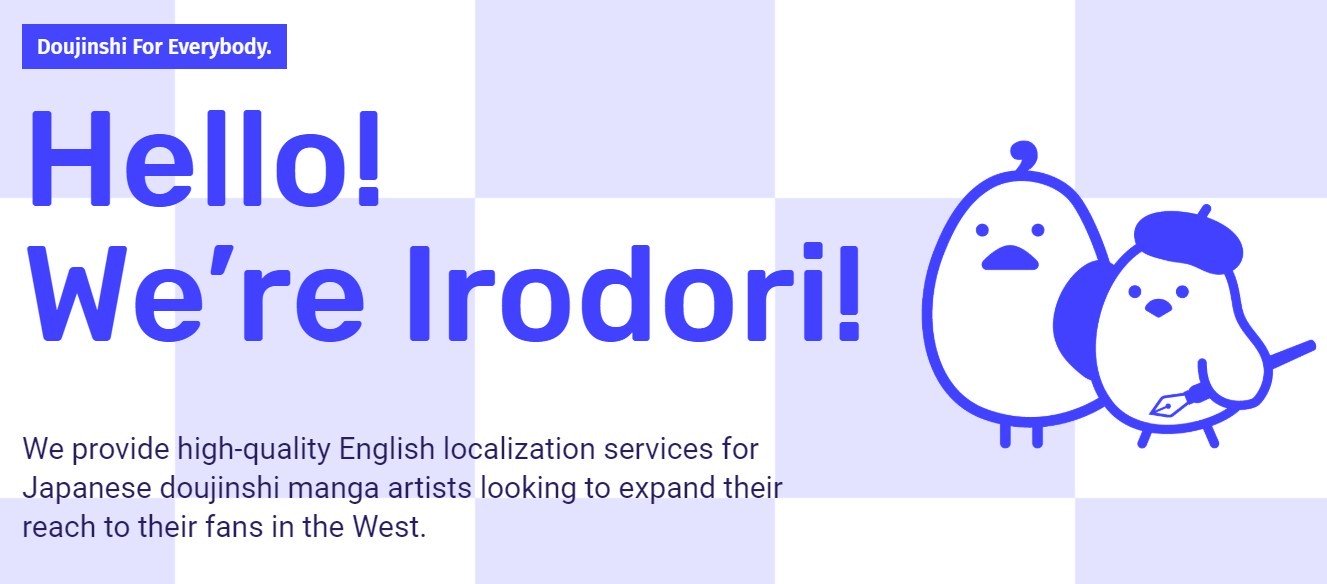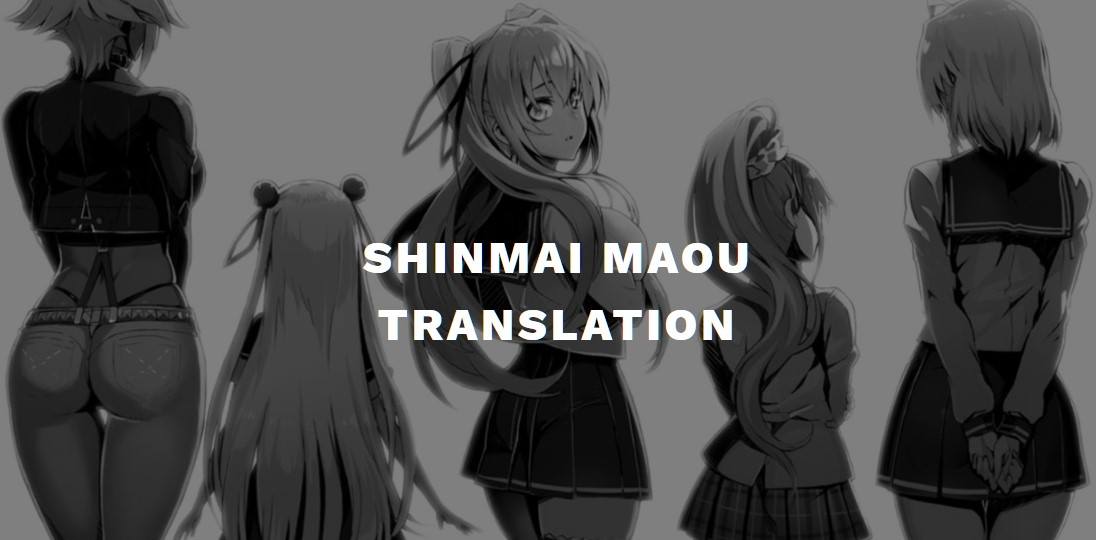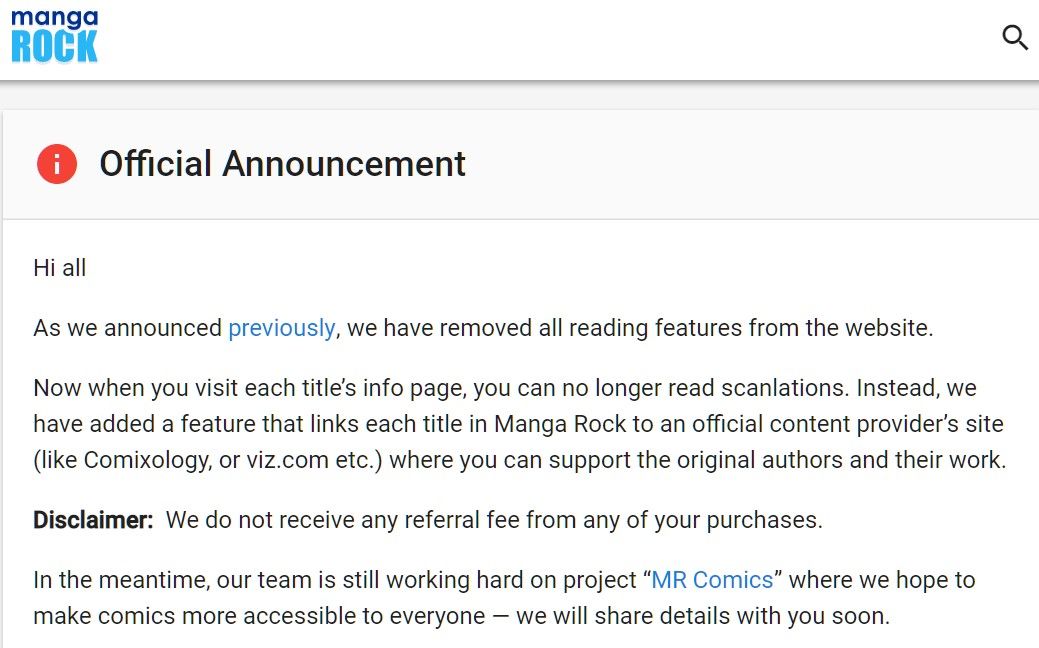Google Promotes Pirate Videogame Repacker ‘FitGirl’ to ‘Musical Artist’ Status
mardi 9 juin 2020 à 10:16 In a world where Internet connection speeds have risen to heights we could only dream about a few short years ago, for most people complex videogames still take an absolute age to download, even from legal services such as Steam.
In a world where Internet connection speeds have risen to heights we could only dream about a few short years ago, for most people complex videogames still take an absolute age to download, even from legal services such as Steam.
The situation is not much different for people downloading pirate releases using torrents either, but there are people out there who aim to make life a little bit easier. So-called ‘repackers’ heavily compress pirate releases and place them online, helping those with limited bandwidth or low Internet speeds obtain games using limited resources.
With legions of fans, ‘FitGirl’ is perhaps the most well-known and best-loved ‘repacker’ on the Internet today. ‘She’ (gender is up for debate) regularly releases popular pirated videogames but according to Google, this shadowy figure also has other hidden talents.
FitGirl Racing Up The Charts
As the image below shows, Google’s search algorithm has given this famous pirate her very own ‘knowledge panel’ which has elevated her to the status of ‘musical artist’ complete with a list of her most famous ‘songs’.
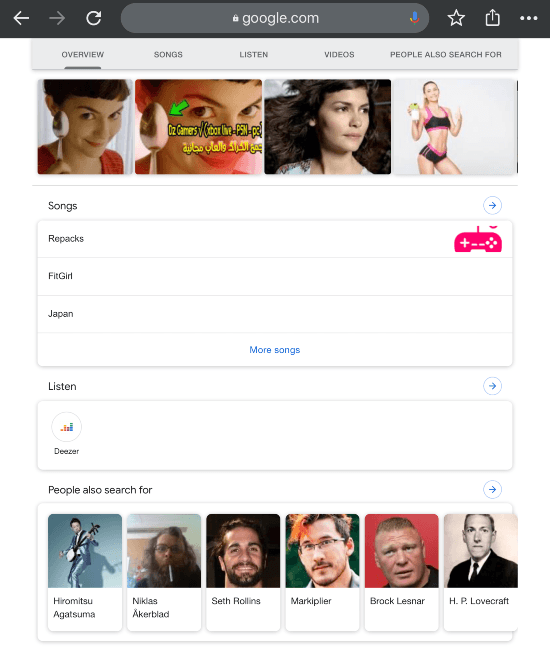
Google’s full list of FitGirl’s most ‘famous tracks’ is also amusing. In addition to the self-titled track ‘FitGirl’, Google has amusingly conjured up the timeless song ‘Installers’ and, of course, the chart-topping classic ‘Repacks’. None of these tracks exist, despite the optimistic inclusion of a link to Deezer where her songs are supposedly available (they’re not).
That being said, it’s interesting to see that Google has linked FitGirl with Hiromitsu Agatsuma, noting that people who searched for her also searched for this Japanese musician.
The reason for this connection is that Fitgirl has included Agatsuma’s track ‘Tsuki Sayu Yoru’ in her installers, popularizing it among pirates. Indeed, checking the track on YouTube reveals people commenting that the only reason they’re listening to the artist is because of FitGirl’s releases.
Fun and Games Until The Malware Appears
While this amusing algorithmic anomaly will raise a few smiles, there is a darker side to this too.
The supposed song titled ‘Repacks’ has been given a pink joypad graphic which is of course entirely fitting if a little spooky given the data Google’s algorithms must be picking up. However, when clicked, we aren’t treated to extra information about this imaginary track but a ‘pirate’ search that throws up several results, including what some might conclude is the official FitGirl site, right at the top.
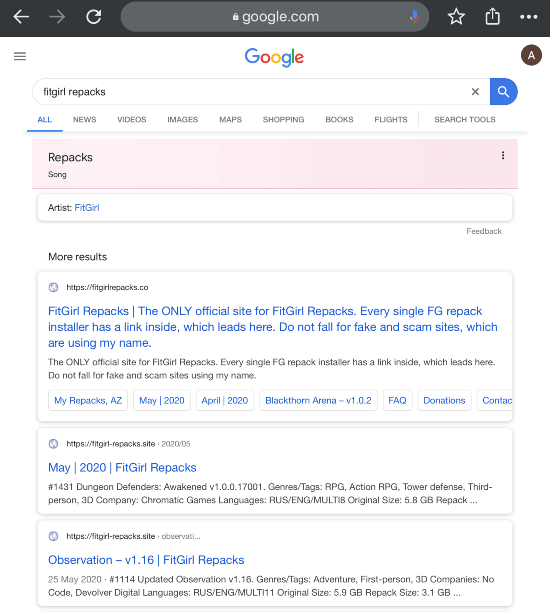
Despite the claims that Fitgirlrepacks.co is the “ONLY official site for FitGirl Repacks”, this site is far from official. As per the warning on the real FitGirl site, this is a fake, “made to infect you with malware, show you tons of ads and get your money as donations.”
The claim that the domain is a malware trap appears to be supported by anti-malware software MalwareBytes, which blocks the platform while warning of ‘trojans’. The big question is why this domain (and the several others that appear following a basic ‘FitGirl’ search) are promoted to the top spots by Google.
It’s hard to be precise but given that sites that are demoted based on the number of DMCA notices that are filed against them, the official site certainly suffers more in this respect, something which may have hurt its search ranking.
As reported earlier this month, Google’s code previously and inadvertently showcased YTS and YIFY pirate movie releases in a similar manner. That error was quickly fixed as this one will be too, cutting short what could’ve been a great musical career for one of the world’s most famous pirates.
From: TF, for the latest news on copyright battles, piracy and more.
 Earlier this year, a popular Popcorn Time fork had its
Earlier this year, a popular Popcorn Time fork had its 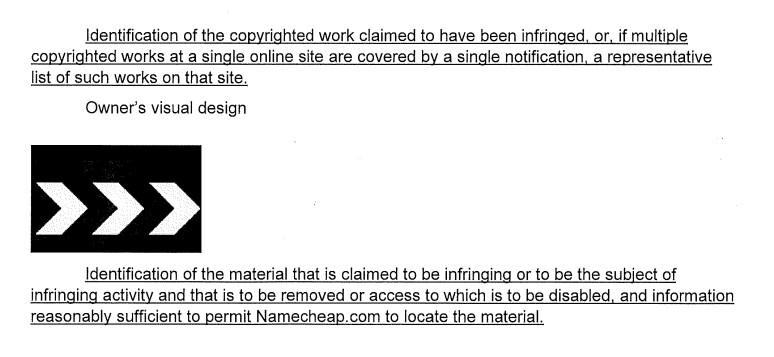
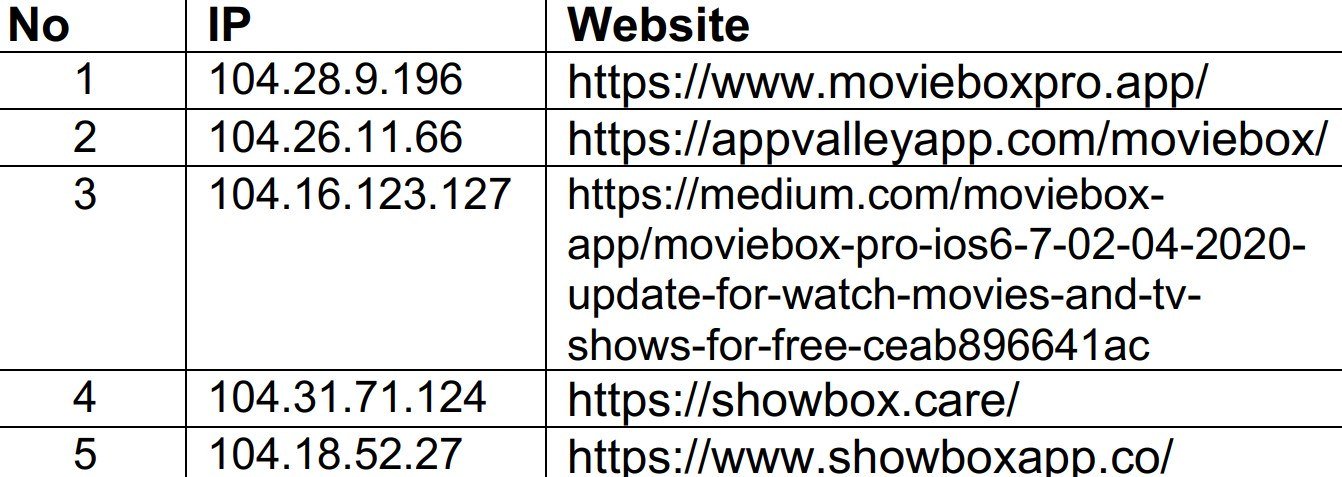

 Manga comics and magazines are extremely popular. Early on this was mostly limited to Japan but nowadays it’s a global phenomenon.
Manga comics and magazines are extremely popular. Early on this was mostly limited to Japan but nowadays it’s a global phenomenon. 